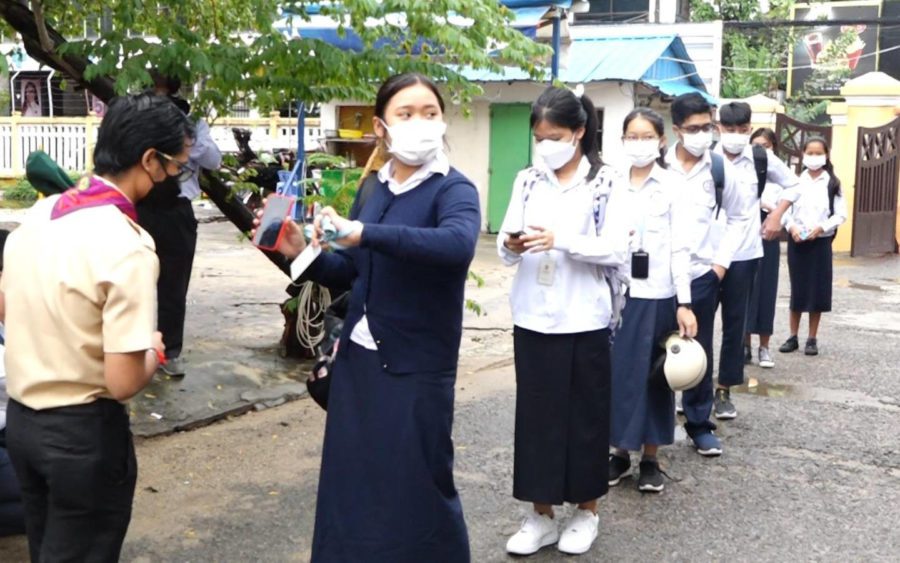Cambodian students are failing at Khmer language and Math at significantly higher rates post-pandemic — with bigger drops for boys and city dwellers — an official survey has found.
After schools were closed for two-thirds of the past two years, students failing to demonstrate basic proficiency increased from 34 to 45 percent in Khmer language and from 49 to 74 percent in Mathematics, according to an Education Ministry survey released Tuesday.
“These are worrying results,” said Education Minister Hang Chuon Naron.
Remote learning helped maintain learning for many, but the survey results showed it “simply couldn’t be enough to compensate for all that is lost by children when they are not learning in a classroom,” Chuon Naron said.
“It’s now time for us all to try and help Cambodian children catch up with the learning they have lost, a process that has begun but must now be accelerated.”
According to the findings — which a press release labeled “alarming” and “grim” — the impact was not evenly distributed.
“Boys lost more learning and performed worse in testing,” it said: 55 percent of boys were assessed as not meeting basic proficiency in the Khmer language in 2021, compared to 34 percent of girls.
Urban schools still performed better than rural ones, but city students experienced “more severe levels of learning loss.” Mathematics results were also significantly worse than Khmer language, the study added.
The number of students who didn’t meet basic standards in Mathematics in urban schools rose from 30 to 62 percent, while in rural schools the students who didn’t meet those standards rose from 54 to 77 percent, the study said.
Chea Srey Nich, an 18-year-old grade 12 student, said online learning had been a challenge. Studies stopped and started, and sometimes not everyone had the right learning materials.
“We couldn’t ask teachers to explain” as easily, Srey Nich said. She added that her male classmates seemed to be more bored of the online learning and missed more sessions compared to female classmates.
For Sophea Dane, 37, her university-student son seemed to handle the disruptions better than her grade-11 daughter.
“My younger daughter found some courses difficult for her to understand, and my daughter always complained to me after class,” Dane said.
However, there was no choice, and she was glad her students were safe during Covid-19, she said.
Plery Chealy, who takes care of a grade-10 niece, said it seemed students kept falling behind during the pandemic.
“Most students couldn’t catch up,” Chealy said, and added that things seemed to be improving again now that in-person classes had resumed.













